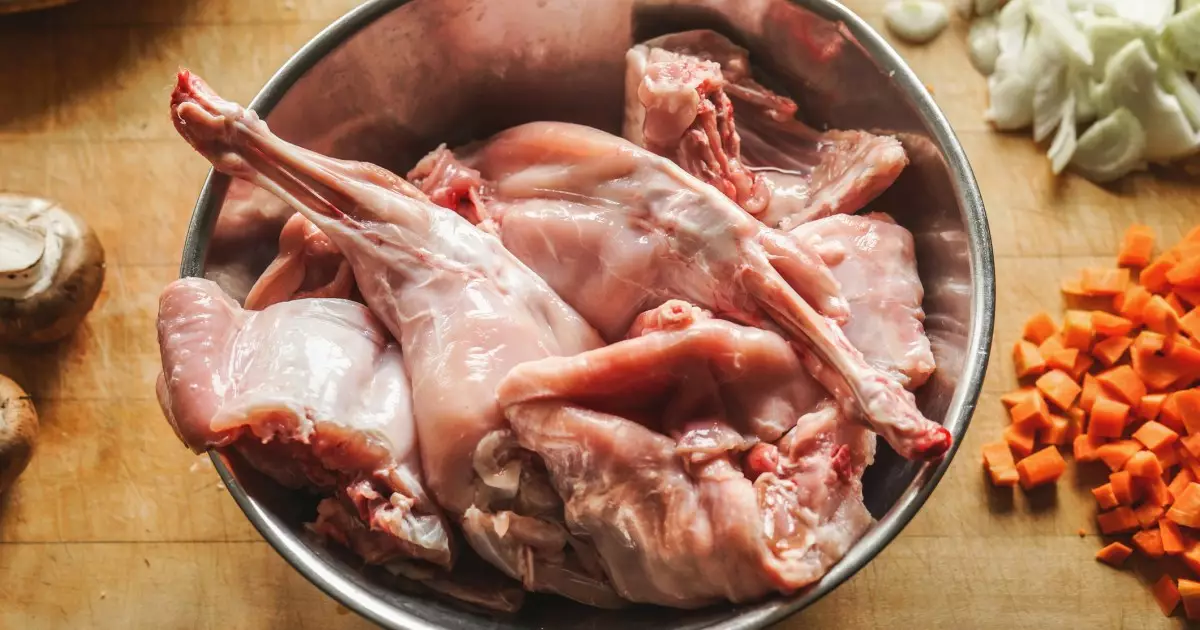When pondering dietary choices for dogs, rabbit meat emerges as a remarkable option that might surprise many pet owners. As we continue to explore a more versatile and nutritious range of foods for our four-legged friends, rabbit stands out not only for its health benefits but also for its unique appeal. Offering a solid alternative to standard meats, rabbit meat serves as a source of lean protein, making it particularly beneficial for dogs who need to watch their weight.
The conversation around incorporating rabbit into your dog’s diet stems from balancing nutritional needs and the quest for palatability. Unlike red meats that can be high in cholesterol and fat, rabbit offers a lighter alternative without sacrificing quality protein. For dogs that require a special diet due to weight management or digestive sensitivities, introducing rabbit meat could be a game changer.
Health Benefits of Rabbit Meat
Understanding the nutritional profile of rabbit meat is essential for any dog owner considering this option. As stated, rabbit is classified as white meat and typically contains lower fat levels—ideal for dogs who struggle with obesity. Additionally, it is packed with protein that is easily digestible, allowing your canine to reap the benefits without experiencing digestive issues. Furthermore, the protein derived from rabbit is considered a “novel protein,” which can be advantageous if your dog has specific allergies or sensitivities to more common protein sources like chicken or beef.
Moreover, introducing rabbit meat can break the monotony of your dog’s diet, keeping mealtime exciting and encouraging a more nuanced palate. This diversification is crucial, especially for dogs who may tire of the same food day in and day out.
Safe Preparation Practices
Despite the benefits, it’s important to emphasize safety. Always consult with your veterinarian before adding anything new to your dog’s diet, including rabbit meat. If you decide to offer rabbit, sourcing quality meat is paramount. Opt for reputable suppliers, avoiding the temptation to hunt or source it from questionable origins.
Once you have acquired rabbit meat, the preparation methods can also influence its digestibility. While cooking rabbit minimizes risks, particularly for first-time consumers, raw feeding can lead to potential stomach upsides if your dog isn’t accustomed to it. A gradual introduction would help your pet adjust. Couple this with ensuring there are no added seasonings or oils, and you have the makings of a dog-friendly meal.
Be Aware of Potential Risks
While rabbit meat has many benefits, vigilance against potential health issues is essential. Rarely, dogs may be susceptible to tularemia—a bacterial disease associated with rabbits. Therefore, if your dog tends to scavenge or feeds on raw meat, careful observation is necessary. Keep an eye out for unusual behavior or digestive distress, and consult your vet at the first sign of trouble.
Overall, incorporating rabbit meat into your canine’s diet can elevate their nutritional intake while providing a delightful twist to their meals. It encourages dietary diversity, which plays a crucial role in your dog’s overall well-being, maintaining both physical health and happiness.

